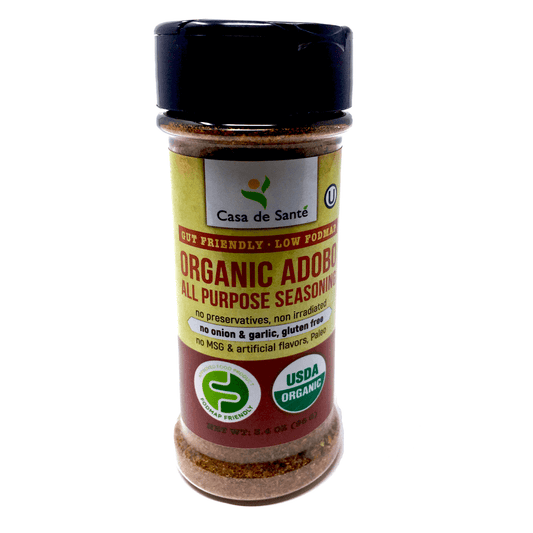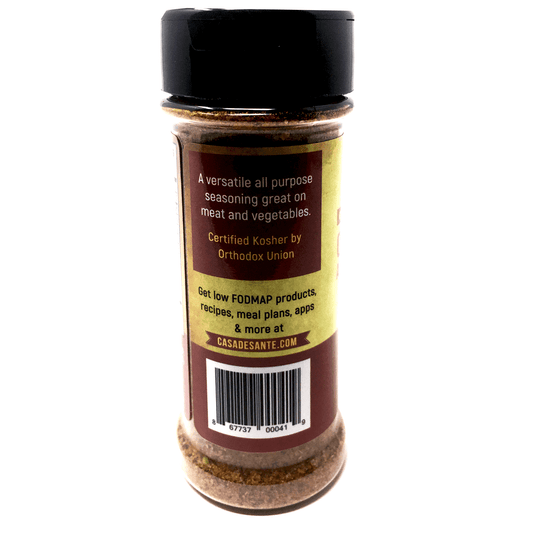Is Kelp Easy To Digest
Kelp, a type of brown seaweed found on the coasts of the Pacific Ocean, has been gaining popularity recently for its impressive nutritional profile. However, many people are still curious as to whether kelp is easy to digest. In this article, we will explore the components of kelp, how they affect our digestive system, and the benefits of consuming kelp for overall gut health.
What is Kelp and Its Nutritional Value
Kelp is a type of seaweed that is known for its high iodine content. In fact, just one gram of kelp can provide up to 45% of the recommended daily intake of iodine. In addition to iodine, kelp is rich in vitamins and minerals such as vitamin K, calcium, magnesium, and iron. Kelp also contains a group of compounds called fucoidans, which have been shown to have anti-inflammatory and antioxidant properties.
Aside from its nutritional value, kelp has been used for various purposes throughout history. In traditional Chinese medicine, kelp has been used to treat thyroid disorders, obesity, and inflammation. Kelp has also been used as a natural fertilizer for crops and as a food source for livestock. In recent years, kelp has gained popularity as a sustainable alternative to traditional fertilizers and as a potential source of biofuel.
The Digestive System: How It Works
Before we dive into the specifics of kelp digestion, it's important to understand how our digestive system works. The digestive system is a complex network of organs and tissues that work together to break down the food we eat into nutrients that our bodies can absorb and use for energy, growth, and repair. The process of digestion begins in the mouth, where saliva starts to break down food. From there, food travels to the stomach where it is further broken down by stomach acid. Finally, the nutrients are absorbed in the small intestine and waste is eliminated through the large intestine.
It's important to note that the digestive system is not just responsible for breaking down food, but also for protecting our bodies from harmful bacteria and toxins. The stomach acid, for example, helps to kill off any harmful bacteria that may be present in the food we eat. Additionally, the lining of the digestive tract contains immune cells that help to identify and eliminate any harmful substances that may enter our bodies through the food we eat. So, while the digestive system may seem like a simple process, it is actually a complex and vital part of our overall health and well-being.
What Makes Food Easy or Difficult to Digest
There are a variety of factors that can impact how easily our bodies are able to digest certain foods. One key factor is the fiber content. Soluble fiber, found in foods like oatmeal and beans, can help slow down the digestive process and promote a feeling of fullness. Insoluble fiber, found in foods like vegetables and whole grains, can help move waste through the digestive tract. Another factor that can impact digestion is the fat content of a food. High-fat foods take longer to digest and can cause discomfort in some individuals.
In addition to fiber and fat content, the preparation method of a food can also affect its digestibility. For example, raw vegetables may be more difficult to digest than cooked vegetables because cooking breaks down the tough fibers. Similarly, marinating meat before cooking can help break down the proteins and make it easier to digest. It's important to pay attention to how your body reacts to different foods and preparation methods to determine what works best for you.
The Role of Fiber in Digestion
Fiber is an essential component of a healthy diet and plays a key role in digestion. According to the American Heart Association, a diet rich in fruits, vegetables, whole grains, and legumes can help improve digestive health and reduce the risk of chronic diseases such as heart disease and diabetes. Fiber helps to regulate bowel movements, promote feelings of fullness, and can even help reduce cholesterol levels.
There are two types of fiber: soluble and insoluble. Soluble fiber dissolves in water and forms a gel-like substance in the digestive tract, which helps to slow down the absorption of sugar and cholesterol. Insoluble fiber, on the other hand, does not dissolve in water and adds bulk to the stool, which helps to prevent constipation and promote regular bowel movements.
It is recommended that adults consume between 25-30 grams of fiber per day, but many people fall short of this goal. To increase your fiber intake, try incorporating more whole grains, fruits, vegetables, and legumes into your diet. You can also consider taking a fiber supplement, but it is important to drink plenty of water when doing so to prevent constipation.
The Benefits of Consuming Kelp
There are a variety of health benefits associated with consuming kelp, including improved thyroid function, cancer prevention, and reduced inflammation. In addition, kelp has been shown to have a prebiotic effect, meaning that it can promote the growth of healthy gut bacteria. This can be particularly beneficial for individuals with digestive disorders such as irritable bowel syndrome.
Another benefit of consuming kelp is its high nutrient content. Kelp is rich in vitamins and minerals such as iodine, calcium, and iron. These nutrients are essential for maintaining healthy bones, teeth, and blood cells. Additionally, kelp is a good source of antioxidants, which can help protect the body against damage from harmful free radicals.
Furthermore, kelp has been found to have anti-inflammatory properties, which can help reduce the risk of chronic diseases such as heart disease and diabetes. Some studies have also suggested that kelp may have anti-cancer properties, although more research is needed to confirm this.
Understanding the Components of Kelp for Digestion
Kelp contains a variety of components that can impact digestion. One key component is algin, a type of carbohydrate that is found in the cell walls of kelp. Algin has been shown to act as a natural laxative, helping to promote regular bowel movements. In addition, the fucoidans found in kelp have been shown to have anti-inflammatory properties, which can help reduce inflammation in the digestive tract.
Another important component of kelp for digestion is laminarin, a type of polysaccharide that has prebiotic properties. Prebiotics are non-digestible fibers that promote the growth of beneficial bacteria in the gut, which can improve overall digestive health. Additionally, kelp is a rich source of iodine, a mineral that is essential for the production of thyroid hormones. These hormones play a crucial role in regulating metabolism and digestion.
It is important to note that while kelp can have positive effects on digestion, it should be consumed in moderation. Excessive consumption of kelp can lead to an overconsumption of iodine, which can have negative effects on thyroid function. It is recommended to consult with a healthcare professional before adding kelp to your diet, especially if you have a history of thyroid issues.
How Kelp Affects Digestion: Research Studies and Findings
While there is limited research on the specific effects of kelp on digestion, there have been some promising findings. In one study, researchers found that kelp extract was able to significantly increase the activity of digestive enzymes, which can help improve the overall efficiency of the digestive system. In another study, researchers found that kelp consumption was associated with a decrease in inflammation in the digestive tract.
Additionally, kelp is a rich source of dietary fiber, which is essential for maintaining a healthy digestive system. Fiber helps to regulate bowel movements, prevent constipation, and promote the growth of beneficial gut bacteria. Kelp also contains a variety of vitamins and minerals, such as iodine, magnesium, and calcium, which are important for overall digestive health.
Addressing Common Misconceptions About Kelp and Digestion
Despite its many benefits, there are some common misconceptions about kelp and digestion. One misconception is that kelp can block the absorption of other nutrients, such as calcium. However, research has not supported this claim and in fact, kelp may actually enhance the absorption of some nutrients. Another misconception is that kelp can be harmful to individuals with thyroid disorders due to its high iodine content. However, as long as kelp is consumed in moderation, it is generally considered safe for individuals with thyroid disorders.
Additionally, some people believe that kelp can cause digestive issues such as bloating or gas. While it is true that kelp contains a type of carbohydrate that can be difficult for some people to digest, this is not the case for everyone. In fact, many people find that consuming kelp actually helps to improve their digestion and reduce bloating. As with any new food, it is important to start with small amounts and gradually increase your intake to see how your body responds.
Tips for Incorporating Kelp into Your Diet for Optimal Digestion
If you're interested in incorporating kelp into your diet for improved digestive health, there are a variety of ways to do so. Kelp can be added to soups and stews, used as a salad topping, or even consumed as a snack in the form of kelp chips. It's important to remember to consume kelp in moderation, as too much iodine can be harmful. As with any dietary changes, it's always a good idea to speak with a healthcare professional before making any major adjustments to your diet.
Overall, while there is still much to be learned about the specific effects of kelp on digestion, there is evidence to suggest that consuming kelp can have a variety of health benefits. From reducing inflammation to promoting healthy gut bacteria, kelp is a nutrient-dense food that can be a valuable addition to a balanced diet.
One of the benefits of incorporating kelp into your diet is its high fiber content. Fiber is essential for maintaining healthy digestion, as it helps to regulate bowel movements and prevent constipation. Kelp is also rich in antioxidants, which can help to protect the body against damage from free radicals and reduce the risk of chronic diseases such as cancer and heart disease.
Another way to consume kelp is by taking it in supplement form. Kelp supplements are available in capsules, tablets, and powders, and can be a convenient way to ensure that you're getting enough of this nutrient-rich food in your diet. However, it's important to choose a high-quality supplement from a reputable source, and to follow the recommended dosage to avoid any potential side effects.
























